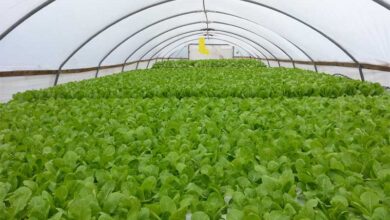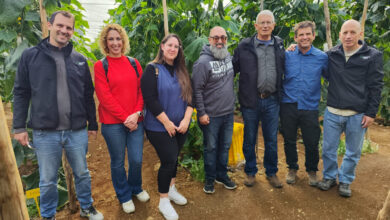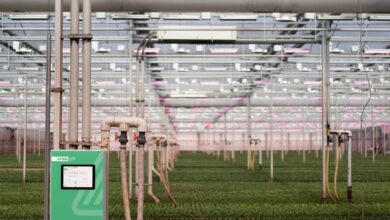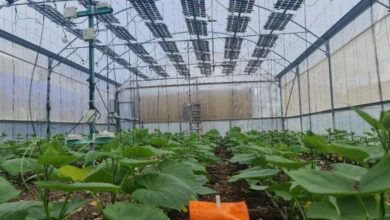Ginegar Helps Growers Cope with Climate Changes
The perfect match between a Ginegar solution and the customer’s needs, crops, climate and terrain conditions
An Interview with Noam Stahl, Ginegar's R&D manager

Ginegar, a world-leading provider of smart covers for intensive agriculture and horticulture. The Company has three sites in Israel and additional facilities in the USA, Brazil and India.
Noam ” At Ginegar, we pride ourselves on finding the perfect match between a Ginegar solution and our customer’s needs, crops, climate and terrain conditions — and then continuing to ensure remarkable results with ongoing support and assistance”
These solutions include the following developments:
Prevention of damage owing to the more frequent occurrences of frost in various regions, mainly to sub-tropical crops.
There are research results suggesting that Aluminet® nets can be applied as a protective measure.
Ginegar’s plastic nets can protect against hail storms occurring more frequently now in early March with consequent damage to the fruit on the citrus trees (especially the “Or” variety of Clementines).
Increasing radiation levels have also led to a greater need to cover orchards and vineyards with nets and plastic films that reduce the level of direct radiation thereby improving fruit quality all year round. There is also a trend to match specific nets (colored or nets to diffuse light) to the crop type.
An increase in the use of mulching films in fruit orchards to reduce evaporation from the soil and so reduce water consumption can overcome water shortages in many states such as California.
Research initiated by researchers and appropriate trials by Ginegar are in progress at the Besor Experimental Farm to curb the problem of insects. The innovated net must be dense enough to prevent the penetration of insects (e.g. thrips and whitefly) into the plants’ habitat, while ensuring that the crops are sufficiently aired.
Noam Stahl noted that thanks to its accumulated knowledge Ginegar provides the necessary link between growers on the one hand and researchers on the other hand, when the need for a new product arises.
This cooperation aims to bring the required product to the farmer’s door via the experimental station where the trials are conducted. It should be noted that a product may succeed one year but fail a year later owing to the varying environmental conditions and consequently, the product has to be tracked and monitored for at least 3 seasons. During the initial stages the growers are integrated into the process to cut the required research time.
Laws for environmental protection especially in the USA have created increased demand for soil covering in recent years.
Ginegar’s solution, wherever soil fumigation is applied, is a barrier plastic film impermeable to gases so that the fumigation materials remain in the soil for a longer time, a fact, which also reduces any risk to passers-by.
Future developments at Ginegar include the introduction of biodegradable mulch film. This film will save the growers work and resulting cost incurred when removing the plastic films to cultivate the field.
The challenge here is to find the optimal balance between plastic sheets that are robust enough to last the required time before disintegration and needless to say, the product must also be economic.




